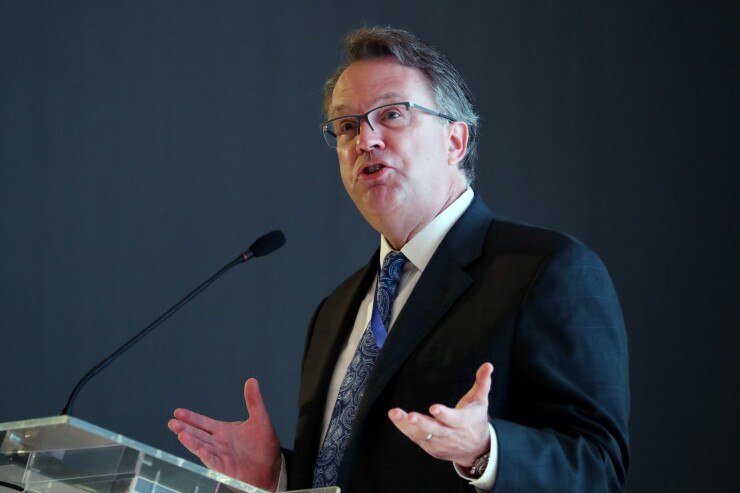Federal Reserve officials, picking up where they left off over the weekend in Jackson Hole, stressed their commitment to defeating inflation while remaining vague on how big their policy move will be next month.
Three regional Fed presidents reiterated in separate remarks on Tuesday that curbing the hottest prices in almost 40 years was their top priority, with New York Fed chief John Williams agreeing interest rates probably need to advance above 3.5% at some point to achieve their goal.
"You do need to get a little bit, or somewhat above that, because you're trying to get not just to neutral, you're also trying to get demand back in line with supply," he said during a virtual Wall Street Journal interview in which he pushed back against market bets that the Fed would cut rates next year. "It's going to take some time before I would expect to see adjustments of rates downward."

Chair Jerome Powell and his colleagues have put investors on notice of their determination to keep raising interest rates until inflation cools.
The chair declared in a speech Friday at the Fed's annual retreat in Jackson Hole, Wyoming, that bringing price pressures down toward their 2% target was their "overarching focus" and they would not blink even though that will likely cause pain for U.S. households and businesses.
Williams, a key member of Powell's leadership team, said that recent readings on inflation had been encouraging but prices were still rising too fast while the labor market remained strong. As a result, the Fed needs to push rates to a level that is "restrictive," meaning that they restrain the economy.
"We're going to need to have restrictive policy for some time. This is not something that we're going to do for a very short period of time and then change course," he said. "I see us needing to kind of hold this policy stance of pushing inflation down. Bringing demand and supply into alignment is going to take longer, will continue through next year."
Fed officials lifted rates by 75 basis points at their last two meetings and Powell has said that another unusually large increase of this size could be on the table when they meet Sept. 20-21. Policy makers say the decision will be determined by economic data, including the jobs report due Friday and another update on consumer prices that will be released in a few weeks.
Richmond Fed President Thomas Barkin, speaking at a separate event in Huntington, West Virginia, struck a similarly resolute tone without spelling out what that meant for the size of the next rate hike.
"We're committed to returning inflation to our 2% target and we'll do what it takes to get there," Barkin said Tuesday. "I'd expect inflation to bounce around on the way back to our target."
The Fed's preferred inflation gauge is running at more than three times that level at 6.3% in the 12 months through July, near the fastest pace in 40 years. Barkin said that monetary policy acts with a lag, "so I don't expect inflation to come down immediately."
Atlanta Fed chief Raphael Bostic, in an essay posted on his bank's website, called the duty to curb inflations "unshakable" but also said he'd be open to dialing back the pace of increases if prices cooled.
"Incoming data — if they clearly show that inflation has begun slowing — might give us reason to dial back from the hikes of 75 basis points," Bostic said. The Fed "has moved, and will continue to move, expeditiously but carefully to bring inflation back toward our objective of 2%," he said.





